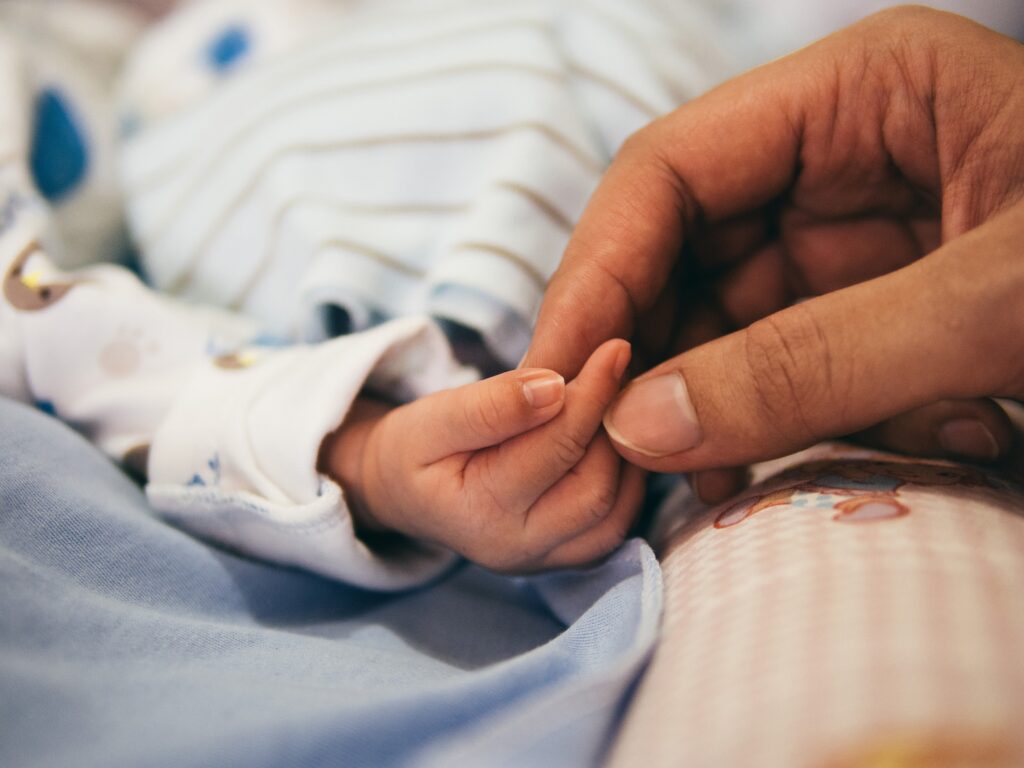
Re-Parenting: Secret of Being a Good Parent
My daughter used to have speech issues when she was younger. She was an anxious little mouse who lacked self confidence, was socially awkward and until two years ago, had considerable stammering problem even when talking to me. Probably when talking with me. Last week, she won second position in a speech competition in her school.
Let me tell you how she changed. She changed because I changed and I changed through re-parenting myself.
Trauma Transfer: Making Mistakes on Repeat
Parenting is a delicately complex process. We humans take a very long time to grow up. As babies, we remain entirely dependent on our parents for many years.

During these early, very formative years, parenting leaves deep imprints on our minds and we carry these marks in our subconscious for the rest of our lives. In an ideal world, our parents would be consciously selfaware people, transferring their healthy habits onto us during our childhood. Unfortunately, this world is far from ideal. Our society doesn’t encourage self awareness.
Majority of parents live unawareness, unconscious, reactive lives with many unhealthy and toxic personality issues. Growing up in a dysfunctional environment can leave deep scars which take a long time to heal. Being unaware, our parents repeated the same unhealthy behaviours which they learned during their childhood.
The traumas they carried remained unresolved and got transferred to us. Re-parenting is the best tool we have to make sure that we, as parents, do not transfer our traumas over to our kids by repeating the mistakes our parents made.
Re-parenting: Giving Myself What I Didn’t Receive As A Child
A lot of time when I came across this questions about what my parents were like in my childhood or how did their parenting affected me, I tried to shy away from these questions by saying, oh that was years ago, my childhood is over, I am through it, those things don’t matter anymore.
I didn’t realise that in reality I wasn’t ready to face the harsh truths about the mistakes my parents made in raising me. And this part, facing the truth about what was lacking in my upbringing during childhood was crucial for me to identify the problem areas in my personality and then focusing on those areas to heal myself through re-parenting.
In layman’s terms, re-parenting means the act of giving yourself what you did not receive as a child. Most of us never received the kind of parenting which would have helped us to grow into happy, fulfilled, well adjusted humans with capacity of real joy as well as capacity to be authentic and compassionate and live up to our true potentials.
Now as adults, re-parenting gives us an opportunity to give ourselves those most vital parts of our upbringing that our parents failed to give us.
Good Parenting: What Does It Look Like?
How can we access how good (or not good) our parents were or what areas of our upbringing were left wanting? The very first step of re-parenting is to find the answer to this question: what am I lacking in my personality and which parts of me need healing?
In order to find answers, I had to do a bit of reverse engineering. My starting point was this question: what are the responsibilities of a good parent? By first understanding the role of a good parent and then comparing it to the parenting l received.
l was able to identify those areas where my parents made mistakes. These were the very same areas on which l needed to focus so I wouldn’t transfer the mistakes of my parents onto my own kid.
So what are basic responsibilities of a parent?
The obvious answer would be first and foremost, to meet the basic needs of the child; to keep the child safe, fed, clothed, housed, all the basic needs of survival. But a parent also needs to do more than just meet these basic needs. A good parent also needs to help the child grow up, become independent (a very very crucial point) and fully functional.
In the best of these cases, the child will grow up to be a self-actualised human being i.e. someone who is self-aware, authentic, living a fulfilling life, someone who can make genuinely healthy connection with others and can contribute something to the society in a productive and compassionate manner.
Reality is that nobody is perfect, including parents. But what parents can be, or should be is good enough. I love this term: good enough parent. A parent doesn’t have to be perfect. But at least be ‘good enough’. Good enough not to leave long term mental or physical damage to your children.
Good enough not to leave their kids with psychological issues which would haunt them for the rest of their lives.
The Four Pillars of Good Parenting: Tasks and Responsibilities
I have discovered that the building of good parenting stands on four pillars.
1: Emotional Regulation
2: Emotional Validation
3: Developing Agency
4: Joy of Individuality and Belonging
These four basic foundational rules are everything. These are the very definition of being a good enough parent. Let’s take a closer look at each one.
Emotional regulation
One of the first tasks of a good parent is emotional regulation. It means to help the child regulate or manage their emotions. Children cannot think logically.
The reason is that Frontal cortex, the CEO of the brain, the Executive Officer who is responsible for higher level decision making and reasoning and logical thinking, is still underdeveloped and will take a long time to become fully functional.
That’s why children mostly operate on an instinctual and emotional spectrum of joy, happiness, fear, anger etc. So when a parent take a crying child who is feeling hurt or scared after falling down, in their arms and soothe them down lovingly, they are helping the child to regulate their overwhelming emotions.

Similarly, cheering up a moody child with encouraging words and pats on the back to go and play with other kids is emotional regulation.
In the morning, when a child doesn’t want to get up, perking them up with some enthusiasm and positive energy, boosting their confidence with encouragement when they feel disappointed after losing a competition, celebrating their pride and joy with them when they do well in a test, sharing their pain when they are feeling low because a friend said something bad to them and then helping them in uplifting from the gloom.
All this training to navigate and manage these big emotions is crucial as the child will grow up into an adolescent and then a teenager and will have to deal with more complex mental states like stress or anxiety.
Children and teens with low capacity of emotional regulation have a higher risk of developing depression, anxiety disorders and other mental health issues.
Giving the child the mental and physical lessons in handling their big emotions is one of the most important tasks of a good parent.

Emotional validation
Emotional validation is as important as emotional regulation, if not more and a key component of good parenting.
As they start connecting with the larger world, like school or meeting extended family members at social events, young children experience lots of feelings for the first time and it’s important for them to know what they are feeling and that it’s perfectly ok to have those new feelings.
In essence, validation means to make sure that the child has freedom to express their feelings and the guidance to understand them.
A parent’s task is to help the child in ‘labeling’ those feelings and then reassure them that it’s ok to feel sad or angry or confused or frustrated or irritated. By labeling the child’s feelings, a parent is showing acceptance of those feelings.
This helps the child to connect with the parent through knowing that their parent understands what they are going through, that they are not alone, and that what they are expressing is important to the parent.
When a child feels comfortable in expressing his or her emotions, it builds up their self worth. Hearing a parent say things like, I understand, I get it, it’s ok, it’s perfectly normal to feel this way, I would have felt the same if it happened to me, hearing these validating phrases can make a world of difference to the child.
Letting the child to express their feelings, encouraging them to talk about it, listening to them with care and attention, putting a name to that emotion or a feeling, for example envy or regret, and then explaining it to the young kid, with the assurance that it’s ok to feel these things and it’s important to talk about them, is emotional validation.
Helping the Child Develop Agency
In simplest terms, having agency means making decisions and then putting them in action. A good parent will let the child try out new things and encourage them to make their own choices.
The parent will act as a guide, as a counselor but encourage the child to make decisions themselves. By helping them to be able to make good choices and good decisions, children become independent thinkers.
Having agency means to have initiative and not waiting for someone else to tell you what you need to do. Something as simple as letting the child learn to tie shoe laces on their own helps in developing agency.
Imagine two kinds of parents. One parent teaches the child how to tie the laces and then hovers over them as the child tries to learn. The parent would interfere, taking the laces from the kids, telling them that they are doing it wrong, would push the kid hard, show their impatience, might even sneer at the child’s clumsiness.
The second parent shows the child the process of tying the shoelaces as well as possible and then lets the child do the work.
The parent will be there to encourage the child or to spark their curiosity about the process of making knots. They will patiently watch the child get frustrated as they make mistakes but the good parent knows that a certain degree of frustration is useful for the child to push through the difficulties and accomplish something.
A good parent will only intervene when needed and do it with encouragement and affection. Overcoming frustration to learn something new, teaches perseverance.
Having agency in childhood means an adult who is an original thinker and is self aware and capable of making good, healthy choices and seeing through those choices by timely and appropriate action.
Helping The Child To Feel Unique and Special As Well As Belong To A Group
One of the fundamentals of good parenting is to help their child become part of the larger community while maintaining their own individuality. Every child is a miracle of the universe. Each child is unique in their own way.
To be aware of that particular uniqueness of their child is mark of a truly good parent. To make the child feel special, to recognize those talents and quirks that make a child different from others and enjoy them and celebrate them with positive, healthy joy, combines validation, regulation and agency together.
At the same time, it’s equally important to help child be part of a larger group. It can be the family or the social scene in the school, or some club, or any other social group. To help the child become a functional member of a group without losing their individuality is the fourth pillar of good parenting.
Validation helps a child in discovering their uniqueness, their own identity, their individuality which makes them different from everyone else. Regulation helps them express their uniqueness in the best possible way, without being overwhelmed by peer pressure. And agency helps them use this self awareness of their unique talents as part of a wider social group.
The role of a parent is to help the child learn from an early age, that they are part of a family, part of a community, where sometimes they have to balance the needs of others with their own. Social integration is important for being a healthy and functional individual but never at the cost of personal identity or mental health.
It is especially important these days as society at large is becoming a not so positive place and the good parent must provide their child with necessary skills not be overwhelmed by demands of social integration.
The Secret of Good Parenting: Four Pillars Make a Stable Building
I have done a lot of research and reading to find this answer and I am sharing it here with you. A parent (or parents) who have used these four elements in the upbringing of a child have raised a kid with a balanced, stable personality. It has helped me tremendously in identifying the flaws in my upbringing.
Now I used these very elements to make sure that I am being a good parent by re-parenting myself. Power to all the parents out there trying to make an effort to be good enough. I see you. I feel you. I understand.





